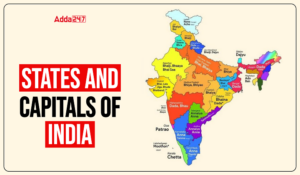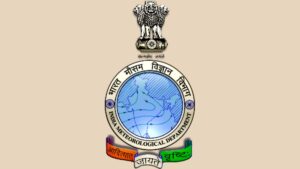The Union Home Ministry has introduced a new Bill to amend the Registration of Birth and Death Act 1969 in the ongoing session of Parliament. The proposed amendments seek to digitize birth records and make Aadhaar mandatory for birth and death registration. The key objective is to streamline documentation processes, ensure accurate record-keeping, and facilitate various government services.
Background:
- The right to documentation, including a birth certificate, is essential for individuals to lead a dignified life.
- The Registration of Births and Deaths Act 1969 was introduced to record vital events in the country.
- Currently, Aadhaar is not obligatory for birth and death registration, and the new amendments will give it legal validity.
- The Registrar General of India (RGI) has been authorized to perform Aadhaar authentication for births and deaths.
Key Provisions of the Bill:
Aadhaar Mandatory for Birth Registration:
-
- The Bill proposes to make Aadhaar compulsory for individuals who possess it during birth and death registration.
- This measure aims to enhance the accuracy and authenticity of records.
Sharing Data with the RGI:
- States will be required to sign a Memorandum of Understanding (MoU) with the RGI to share data through an Application Programming Interface (API).
- The RGI will maintain its own register of births and deaths, and States will have to share real-time data.
Wide-ranging Applications of Birth Certificates:
- The Bill mandates the use of birth certificates for various purposes, including enrollment in schools, voter registration, marriage, passport issuance, and government job applications.
Significance of Data Sharing:
-
- Real-time data sharing will enable the update of the National Population Register (NPR) and electoral register, as well as databases like Aadhaar, ration cards, passports, and driving licenses.
- The constant updating of population data will reduce the need for periodic enumerations and provide an accurate population count.
Concerns Regarding the Bill:
-
- Critics raise concerns about the proposed amendments being used as a mechanism for population control and surveillance.
- The linking of Aadhaar and databases has previously raised privacy concerns, and the Supreme Court has recognized the fundamental right to privacy in such cases.
Provisions of the Registration of Births and Deaths (RBD) Amendment Bill, 2023:
-
- The Bill simplifies registration procedures for births and deaths and applies to individuals born after its enactment.
- States must register births and deaths on the Centre’s Civil Registration System (CRS) portal and share the data with the Registrar General of India.
- Aadhaar numbers of parents and informants will be collected during birth registration if available.
- Medical institutions will be obligated to provide certificates of the cause of death to the Registrar and the nearest relative.
- Special “Sub-Registrars” will be appointed to expedite registration and issuance of death certificates during disasters or epidemics.




 States and Capitals - How Many States in...
States and Capitals - How Many States in...
 OpenAI, Google, Anthropic, xAI Get $200M...
OpenAI, Google, Anthropic, xAI Get $200M...
 NCDEX and IMD Join Hands for India’s Fir...
NCDEX and IMD Join Hands for India’s Fir...

